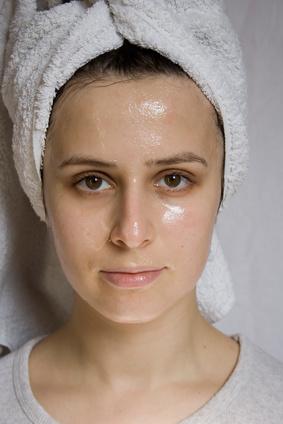Unlike the health of your muscles, bones and internal organs, the health of your skin is something others can easily view. However, like other body organs and tissues, healthy skin requires adequate amounts of vitamins and minerals. Although you might occasionally take it for granted, your outer covering performs some important tasks. Keeping your skin functioning at an optimum level requires sufficient nutrition. A healthy diet can supply your skin with the elements necessary for good health.
Skin Health
The largest organ of your body, your skin protects your body from viruses and bacteria, as well as helps you to regulate your temperature, according to the National Institutes of Health. Many conditions can affect the health of your skin, as well as your appearance. Uncomfortable and unhealthy skin conditions include impetigo, melanomas and rashes.
Allergies and Sensitivities
The foods you eat may promote physical reactions that cause your skin to flare up. Some people develop hives and skin rashes after eating foods they are allergic to, such as strawberries or eggs. Avoiding these foods can help reduce allergic reactions.
Necessary Nutrients
Your skin requires certain nutrients to stay healthy. According to the National Institutes of Health, your skin and hair require adequate amounts of fat. Fat helps maintain the health of your skin by helping your body absorb vitamin A, vitamin D, vitamin E and vitamin K. Obtain the majority of your fat from sources that contain unsaturated fats, rather than saturated or hydrogenated fats. Good sources of healthy fats include olive oil, soybean oil and fish. Like your other body organs, your skin requires other essential elements, such as protein.
Feeding Your Skin
Foods that promote healthy skin also promote overall health. The Mayo Clinic advises consuming a diet that contains plenty of water, fruits and vegetables. Substitute fish for your usual cuts of red meat and limit the amount of sweets and empty calories you consume each day. Include whole-grain breads, nuts and beans in your diet.
Antioxidants
Antioxidant foods may help protect your skin, suggests the Mayo Clinic. Skin-friendly foods include blueberries, carrots, apricots and yellow and orange fruits. Nutritious sources of antioxidants, such as spinach and tomatoes, may also offer a protective effect on your skin.
Photo Credit
- skin care image by anna karwowska from Fotolia.com





